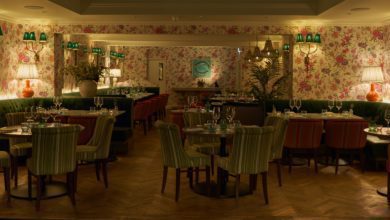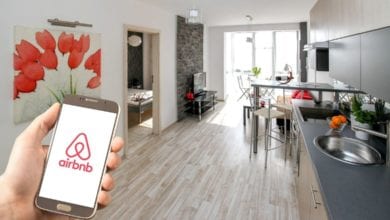Unprofitable hotel kitchens cannot be sustained, but food delivery holds the answer

Nationwide lockdown is over, staycations are booming, and yet across the hotel industry, thousands of venues are struggling with low occupancy rates, particularly hotels in city centres, not to mention the considerable costs incurred as owners go to extreme lengths to make patrons feel safe during their stay.
In an industry battling for survival amidst ever-evolving health concerns, lockdown and social distancing measures, the thorny issue of hotel kitchen profitability can no longer be ignored.
The majority of hotel kitchens are underutilised and carry excess capacity. It’s a problem that predates Covid by many years. Speaking back in 2017, Adelina Barphe, VP of the International Food & Beverage Association, explained that, “The F&B department remains the Achilles’ Heel in most hotels… Bad F&B results in a hotel are somehow chopped and sliced in many pieces along the management team… Poor management and operational decision, waste and mishandling are overlooked under the security umbrella of the hotel property and rooms division revenue.”
Whereas a standalone restaurant has no choice but to achieve financial sustainability or go bust, hotel kitchens have typically been propped up by the wider organisation without due scrutiny of where improvements or efficiencies might be implemented. However, current trading challenges are making it impossible for some hotels to continue subsidising their under-utilised and inefficient kitchens. Given that few hotel owners will want to dispense with their on-premise food offering, it’s time for a rethink of how these hotel kitchens are run and who they serve.
The answer lies in the online food delivery market.
Online food delivery has grown by 40% in the past 5 years in the UK. The pandemic has further accelerated uptake, introducing new audiences and demographics to delivery for the first time. And what we’re learning is that any commercial kitchen has the potential to achieve success within the delivery arena, with minimal additional outlay.
With the help of new technology and training processes, hotel kitchens can be easily and quickly reorganised to serve up food for external delivery alongside their on-premise offering. Kitchen staff who might normally be left twiddling their thumbs for long periods can spend this time preparing delivery orders. Expensive-to-run, always-on kitchen equipment can be far better utilised. And whilst typically, kitchens need approximately five square feet of space per restaurant seat, optimising a kitchen for food delivery requires no more space, therefore maximising revenue per square foot. For no upfront investment, there is another revenue stream waiting to be untapped.
City centre hotels, in particular, appear well-suited to entering the market for food delivery, given that the average delivery kitchen serves a 2-4-mile radius. Manchester’s Holiday Inn in the centre of the city has recently, and successfully, made this very move.
The key to making the transition is to break with the ‘one brand, one kitchen’ mindset that has dominated the food industry for decades. Hoteliers need to look past their existing restaurant/room service menus, which are designed around the on-premise experience rather than to meet delivery customers’ exacting requirements around speed, convenience, price and presentation.
Instead, by reconfiguring their kitchens to prepare multiple food brands, hotels can maintain their existing on-premise offering while branching out into an array of different, complementary cuisines specifically designed for delivery. More food options makes for better use of kitchen equipment and staff; more brands served allows each hotel to target a broader local customer base.
Venues don’t need to design these brands themselves – they can license them from existing food providers. For example, Absurd Bird chicken, which was originally devised as an on-premise restaurant chain, is now licensed and produced for delivery by a hospitality business that owns hundreds of kitchens across the UK.
The technology element of the transition is two-fold. First, food delivery technology can seamlessly integrate hotel POS and inventory management systems with the leading online delivery platforms, allowing a kitchen to start taking delivery orders within days.
Second, some technology offerings are capable of harnessing the power of machine learning to give kitchens better data on how their food brands and menu items are performing. The premise is simple – use data to learn more about the ordering habits of delivery customers within the vicinity of the hotel, and prepare relevant, on-trend food brands and menu items that precisely meet their needs.
Thankfully due to this emerging technology, analysing food delivery data doesn’t require a degree in data science, but can be a seamless ongoing process in order to spot new local trends as they emerge. Armed with this data, kitchens can easily switch-in new host food brands, shake up the menus or even swap out different brands until they get the offering right.
In the digital world this is called A/B testing, and while few within the hotel industry are setup to experiment in this way across their traditional operations, in the delivery arena a trial-and-test approach can be achieved without ever impacting the on-premise offering.
This is a critical moment for the hotel industry. The furlough scheme, which supported 1.4 million accommodation and food services employees, is being wound down. Eat Out To Help out has come to an end, and it’s not clear that any new Government support initiatives are going to be offered in the months ahead. The onus is on hotel owners to do everything in their power to improve efficiency and find new means of revenue generation at this difficult time.
Technology is readily available to help hoteliers break from ‘one brand, one kitchen’ and introduce delivery brands into their underutilised kitchens. It’s a bold move, but one that could represent a vital lifeline for beleaguered venues facing a future of reduced bookings, safety concerns and social distancing.
Over the past decade, the hotel industry has shown itself to be willing and capable of embracing technology designed to improve the guest experience. Now it’s time to transform their kitchen operations for food delivery.
By Salima Vellani, founder of Kbox









